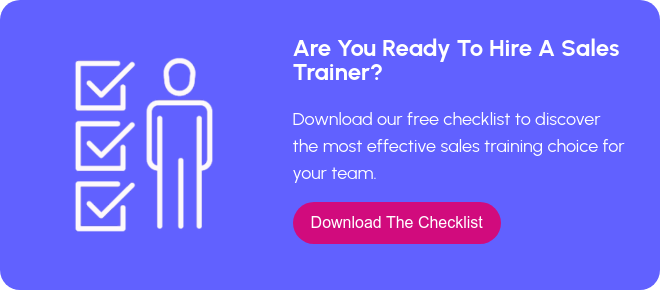Ten Things I Wish I Knew Before I Started Selling
Many of our clients are in the early stages of sales team development as part of their growth strategy. Growth is painful, but investing in building the resources, processes and skills of the sales program, puts them on track to seriously scale their business.
Teaching new sales people to leverage their own skill sets and knowledge in selling is part of that growth.
Often the sales methodology we coach disrupts their experiences and their own expectations of what “selling” actually is and how it’s successfully executed.
All these lessons come from the 20+ years of my own sales experience and the dedication to agile learning and application of lessons and experiences. That being said, I’m going to borrow this super smart and applicable content from sharp sales coach and consultant Anthony Iannarino: Ten Things I Wish I’d Known Before I Started Selling.
He’s right on target with all of these points—whether you’re selling cars, computer support, consulting or cats—up your game by incorporating these lessons in your business, your tool kit or your team.
Ten Things I Wish I’d Known Before I Started Selling
by Anthony Iannarino:
1. It’s about creating value
I resisted selling early in my life because I believed salespeople took advantage of other people. I thought that they were sleazy, self-oriented, and manipulative. Only later did I learn that it was all about helping people get the results they needed.
2. Prospecting comes first
I did really well in sales when I first started selling professionally. That was a problem. Because I did well, I didn’t do enough prospecting. Later, that mistake came back to haunt me when I lost two key accounts back to back (through no fault of my own). I needed a pipeline and didn’t have one.
3. You need more than one relationship
When I first started in sales, I developed great relationships with key stakeholders, power sponsors, if you will. Only later, when the real problems started, did I learn how important it was to have deep relationships in my client companies. Later, I learned how important it was to have these relationships before there was a decision.
4. Disqualify non-opportunities
I spent a lot of time pursuing non-opportunities. It took time from my calling on better prospects. You can’t afford to chase the wrong prospects. If you aren’t really right for the prospect or them for you, you need to disqualify it fast.
5. Business models matter
I spent a lot of time and energy pursuing what I thought were dream clients. But because their business model made them necessarily focused on price, my value proposition was never going to win the business.
6. Presentations don’t win
I literally read my prospects my presentation when I was a kid. All of it. Word for bloody word. Fortunately, I had a great manager that taught me that it wasn’t the presentation that won. It was the ability to understand the clients needs, to help develop a solution with them, and to take accountability for the result.
7. You don’t win or lose on price
I blamed a lot of losses on price when I was young and didn’t know better. I tried to compete on price instead of the value I created. Because I made it about price, so did the client. Only when I learned to move to value did my clients change their decision criteria.
8. Nurture your dream clients
Decades ago I used a very primitive version of sales force automation. I tracked my calls, and I called my prospects every 90 days. I did nothing to create value in front of a sale. I did well in spite of myself, but I did better when started sharing ideas in front of an opportunity. I also did better when I relentlessly called every week.
9. If it was easy, your competitor would have done it already
It was easy to believe my competitors were my prospect’s problems. They believed that by switching to me they would do better, and so did I. It was only after winning their business did I learn that helping my clients was helping them overcome their own internal constraints. If it would have been easy, my competitors would have already made the necessary improvement.
10. Never disappear after a loss
When I was young, if I lost a deal, I’d forget all about it, pick up the pieces and move on. I’d check back with the prospect a year later to find out they’d changed providers twice in that time. They didn’t get what they wanted, so they switched. But they didn’t call me. This happened a couple times before the lesson stuck. It was only then I learned that my competitors failure to execute opened an immediate opportunity. I stopped disappearing.
.webp?width=12693&height=4513&name=Sauce%20Logo%20Dark%20Ht%20(1).webp)

.webp?width=180&height=64&name=Sauce%20Logo%20Dark%20Ht%20(1).webp)











